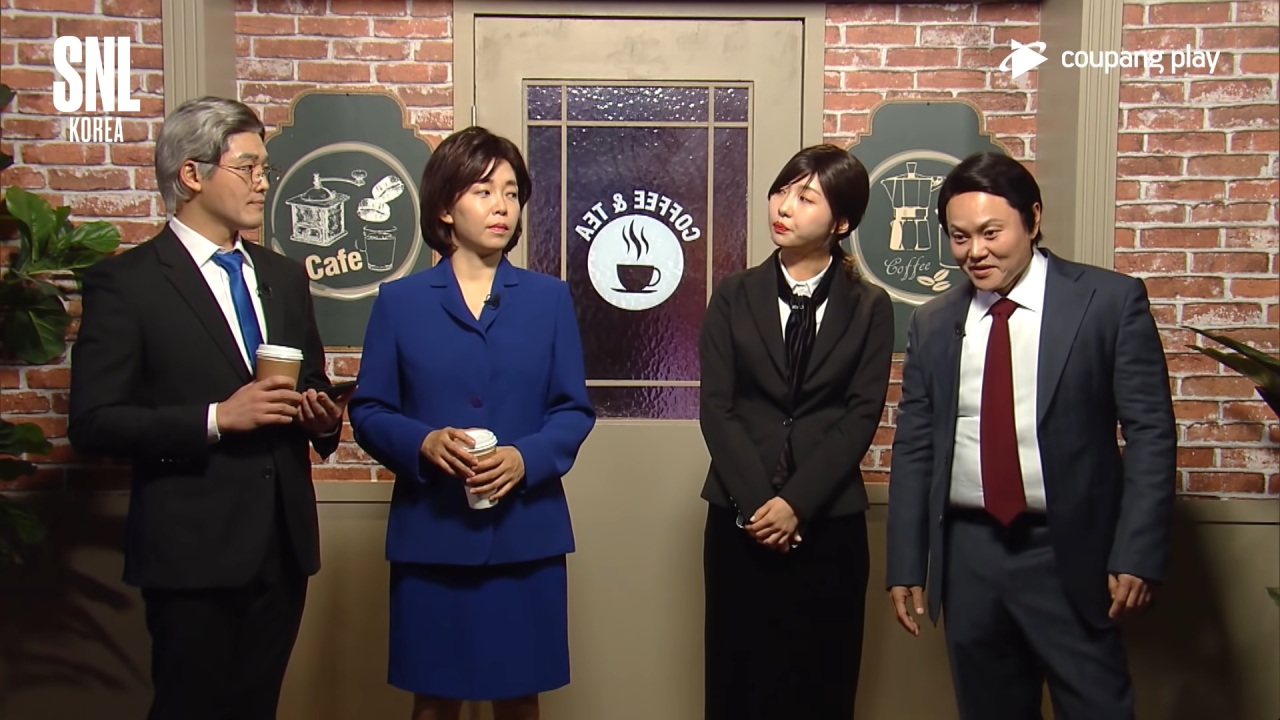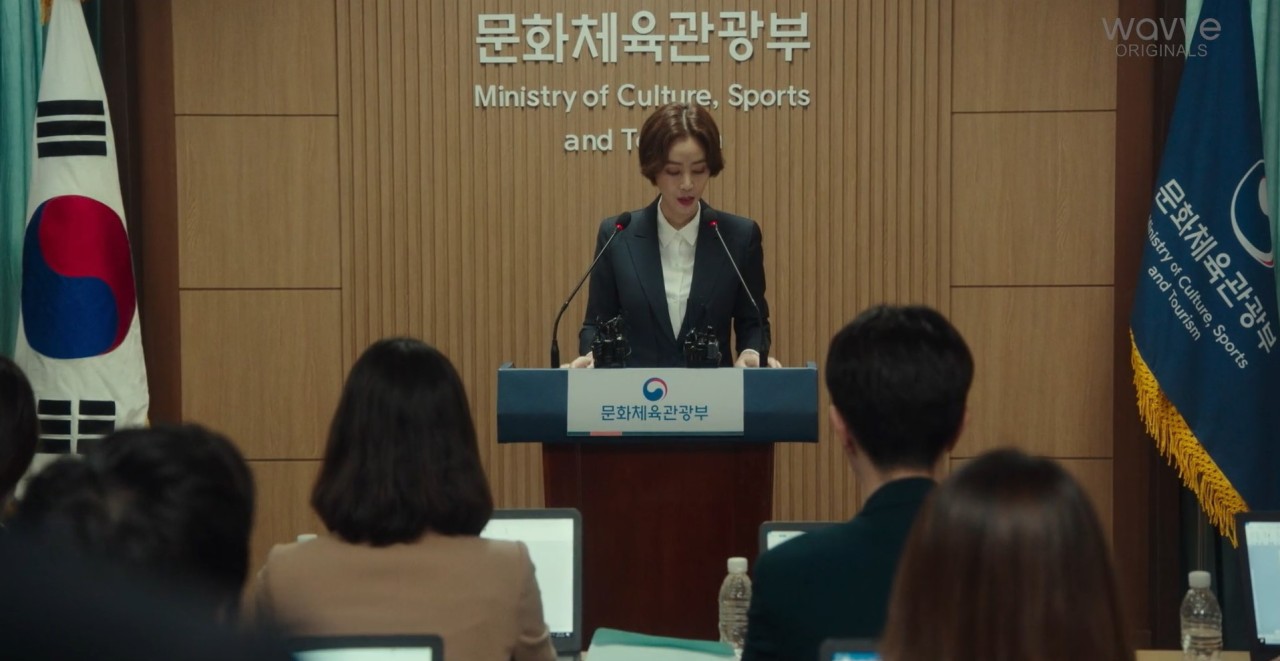 |
Coupang Play’s “SNL Korea” parodies presidential candidates Lee Jae-myung and Yoon Suk-yeol as well as their wives. (Coupang Play) |
As the March presidential election race heats up, political TV series and made-for-television political satires are grabbing attention.
“Saturday Night Live Korea,” a reboot of tvN’s “SNL Korea” (2011-17), returned through local video streaming platform Coupang Play.
The show’s comedy sketches, including the infamous cold opening, have regularly been offering parodies of contemporary politics and widely known controversies surrounding the presidential candidates, including academic plagiarism, questionable remarks and the actions of presidential candidates’ spouses, among others.
The latest highlights of the comedy show’s political clips have recorded over 2 million views on the official YouTube channel of Coupang Play.
“Going to the Blue House Like This,” a political sitcom on local streaming service Wavve, was released as a drama series portraying present-day politics.
 |
Kim Sung-ryoung plays the role of the newly appointed minister of culture, sports and tourism in “Going to the Blue House Like This” (Wavve) |
The 12-part series centers around a politician who becomes an Olympic gold medalist and is appointed as the new minister of culture, sports and tourism. The storyline develops as the minister’s husband, a political critic, is kidnapped by anonymous forces.
According to Wavve, the series recorded the highest number of new viewers and viewing time upon its premiere, and secured its position in the top five in the drama series chart more than four weeks after its Nov. 12 release.
Astory, producer of hit tvN series “Signal” and Netflix’s “Kingdom,” is scheduled to release the new political satire “The Blue House Family” in the coming months.
 |
Cha In-pyo plays the role of president in “The Blue House Family.” (Astory) |
The company plans to release the series via streaming platform, but the final decision on the platform and release date has yet to be announced.
While the election campaign season is seen as a prime time for comedians and actors to showcase their biting satires, ridiculing the many controversies surrounding the major presidential candidates, political satires have all but disappeared from terrestrial broadcasters.
KBS’ comedy show “Gag Concert” (1999-2020), home to many aspiring stand-up comedians who debuted through the program’s open audition, and the comedy sketches from MBC’s hit variety show “Infinity Challenge” (2006-2018), including “Choice 2014” (2014), “Crisis Center” (2014) and “Gravity” (2016) had led the heyday of political satire in South Korea.
“A few years ago, many segments in ‘Gag Concert’ were widely popular for their humorous parody and refreshing satires. But it is difficult to find anything similar to a political satire at the local broadcasters,” a broadcasting official told The Korea Herald on Tuesday.
Though public broadcaster KBS launched “Comedy Survival Stage Turn” in November last year, it does not feature political satire.
Ahn Sang-whi, Astory’s head of production and the director of “SNL Korea,” believes there is room for more political satires in the Korean content industry.
“Standards and regulations by ‘fans’ and supporters of politicians, not necessarily the broadcasters, have become excessive. But I definitely feel that more people, especially those who are in their 20s and 30s, are interested in political issues than five to 10 years ago. I don’t think the viewers are indifferent to these types of comedy shows,” Ahn told The Korea Herald Monday.
“As the country becomes more democratic and developed, more critical satires become possible. I personally hope to see more black comedy and political satire emerge in the local broadcasting and content industry.”
By Lee Si-jin (
sj_lee@heraldcorp.com)










![[Today’s K-pop] Blackpink’s Jennie, Lisa invited to Coachella as solo acts](http://res.heraldm.com/phpwas/restmb_idxmake.php?idx=644&simg=/content/image/2024/11/21/20241121050099_0.jpg)